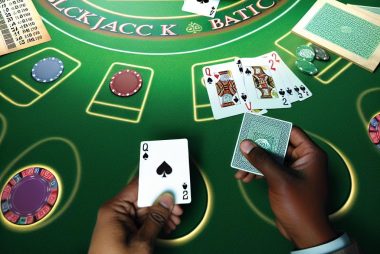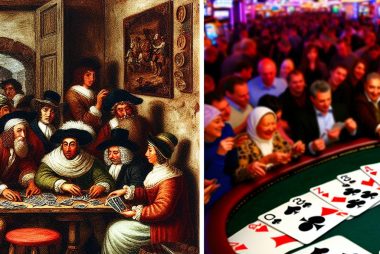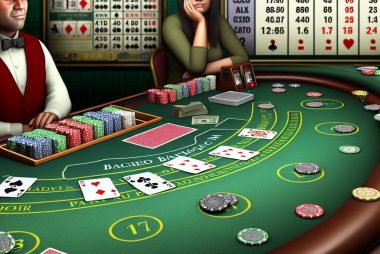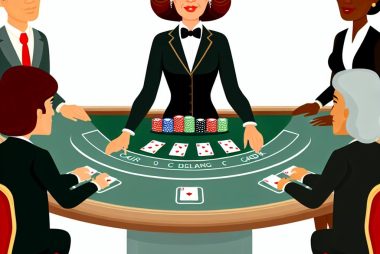The basics of blackjack strategy
Understanding the Basic Rules of Blackjack
Blackjack is a well-loved casino game that seamlessly merges the elements of chance with strategic decision-making. The primary objective when playing blackjack is to achieve a card total as close to 21 as possible, without surpassing this number. Unlike many other casino games, players in blackjack compete directly against the dealer, not against one another, adding a unique dimension to the gaming experience.
Getting Started
At the start of a blackjack game, both the player and the dealer are dealt two cards. One of the dealer’s cards is visible to the players, referred to as the upcard. Based on this initial view of their own cards and the dealer’s upcard, players must decide their subsequent moves strategically.
Basic Moves Explained
During the game, players have several action options that are crucial to the formation of their strategies:
Hit: Players may opt to request another card from the dealer if they wish to increase their total. This move is often vital when a player’s initial card total is low, and they hope to improve their positioning.
Stand: By choosing to stand, players decide to retain their current cards without drawing additional ones. This may occur when players are content with their card totals or wish to avoid busting.
Double Down: When a player doubles down, they double their original bet and receive just one more card. This move is generally made when the initial two cards offer a promising position, hoping that the third card can solidify the hand.
Split: If a player’s first two cards are of the same value, they can choose to split these into two separate hands. Each hand then proceeds independently, with a new card added to each from the deck. Splitting can be a strategic way to capitalize on potentially strong pairs.
Surrender: Available in certain blackjack variations, surrendering allows a player to forfeit half of their bet, effectively exiting the current hand. This option may be exercised when the player’s hand seems unlikely to win, thus minimizing losses.
Core Strategy Considerations
An essential aspect of blackjack strategy is the use of the dealer’s upcard to inform decision-making throughout each round. For instance, if the dealer’s upcard is a 4, 5, or 6, it is typically perceived as a sign of the dealer having a weaker hand. In such cases, players are encouraged to stand on lower totals or even double down if their cards hold promise. Conversely, if the dealer presents a high-value card such as an Ace or 10, players must often adopt a more cautious approach, as these cards strengthen the dealer’s position.
Soft vs. Hard Hands
A critical strategic component in blackjack is understanding the distinction between soft and hard hands. A soft hand is one that includes an Ace valued as 11. This type of hand provides players with greater flexibility, as the Ace can alternatively be counted as 1 to avoid busting. This adaptability makes it easier to hit on hands without dire risk. In contrast, a hard hand does not contain an Ace or, if it does, the Ace is valued as 1. Such hands pose more risk, requiring players to proceed with heightened caution.
Tools for Success
Magnifying your chances of success in blackjack can be considerably aided by employing a basic strategy chart. These charts serve as guides, pinpointing the optimal action for each possible hand scenario, grounded in statistical probability. Such charts simplify strategic decision-making by illustrating the most statistically beneficial movement for different hand combinations in relation to the dealer’s upcard. Some casinos offer such charts to players, while many can be found through online gaming strategy resources.
Challenging the Odds
Enhancing your blackjack skills with strategy does improve your overall odds; however, it is vital to acknowledge that no strategy can ensure a guaranteed win. Mastery of basic strategy empowers players to make more informed decisions but does not alter the intrinsic house edge inherent to casino games. For those intrigued by delving deeper into enhancing their blackjack experience, visiting online resources such as this blackjack resource can provide a wealth of additional insights and strategies.
Mastery and Practice
Comprehensive understanding and continual practice of blackjack strategies significantly contribute to elevating a player’s gaming acumen. Engaging in practice sessions, whether through online platforms or live play, allows players to fine-tune their skills, better recognizing patterns and refining decision-making processes. By simulating a range of hand scenarios, players can confidently navigate various game situations, leveraging probability and strategy to their advantage.
Managing Expectations
When entering a game of blackjack, it is equally important to manage expectations realistically. Even with sharp strategic knowledge, the game is fundamentally steeped in probability. Variability is part of the experience, and unexpected outcomes can emerge at any time. Players are encouraged to maintain composure regardless of temporary setbacks, focusing instead on sensible strategic plays without succumbing to undue stress or thrill-chasing.
Conclusion
Achieving proficiency in the basics of blackjack strategy entails familiarization with the core moves available, insight into the dealer’s potential vulnerabilities, and adeptness at distinguishing between soft and hard hands. While a well-conceived strategy can certainly sway outcomes favorably, acknowledging the unpredictable nature of the game itself is crucial. Players are encouraged to continually hone their skills, keeping in mind the enjoyability and inherently variable essence of blackjack play.




